Are Humans The Only Animal That Male Noise Durring Sex?
Practise animals have sex for pleasure?
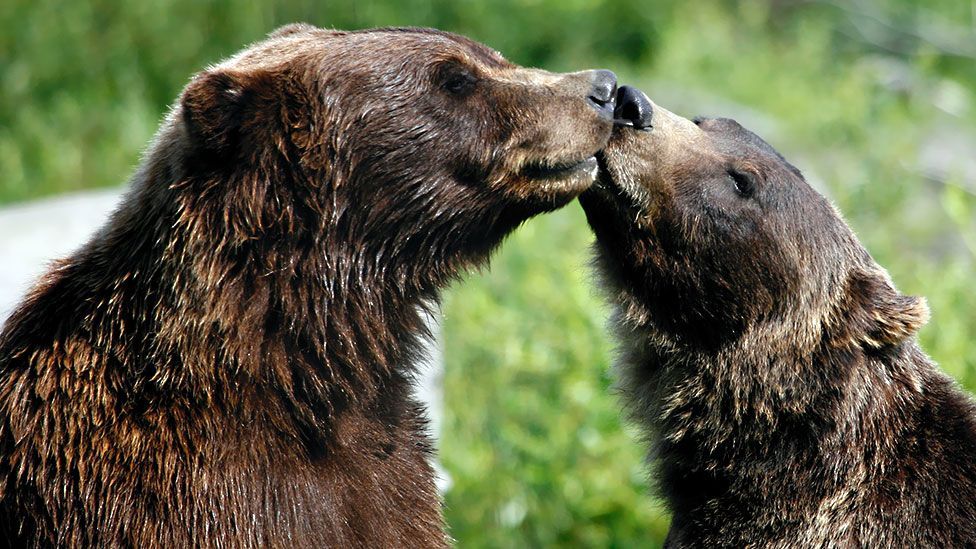
We thought we were the only species to savour intimate interactions, but equally Jason G Goldman discovers, a few curious couplings in nature have changed our view.
Southward
Sex, we are told, is pleasurable. Yet yous probably wouldn't call back that if y'all waded through the scientific literature. That'southward because nigh scientific accounts of sexual behaviour residuum upon evolutionary explanations rather than the more than immediately relevant mental and emotional experiences. To say that we have sex activity because it helps usa to preserve our genetic legacies would be entirely accurate, but the more fleeting, experiential, pleasurable aspects of that well-nigh bones of social urges would be missing. It would be similar staring at a painting with half the color spectrum removed from information technology.
Ane affair we have been curious virtually, though, is whether nosotros are the merely species that experiences sexual pleasure. The question of whether non-homo animals bask it too is a perennial – and scientifically legitimate – question to ask.
In the last 10 to xv years, scientific testify has begun to accumulate that animals do experience a general sensation of pleasure – equally everyone who has stroked a cat volition know. In 2001, for case, psychologists Jeffrey Burgdorf and Jaak Panskepp discovered that laboratory rats enjoyed being amused, emitting a sort of chirpy express joy outside the range of homo hearing. And not only that, they would actively seek out the feeling.
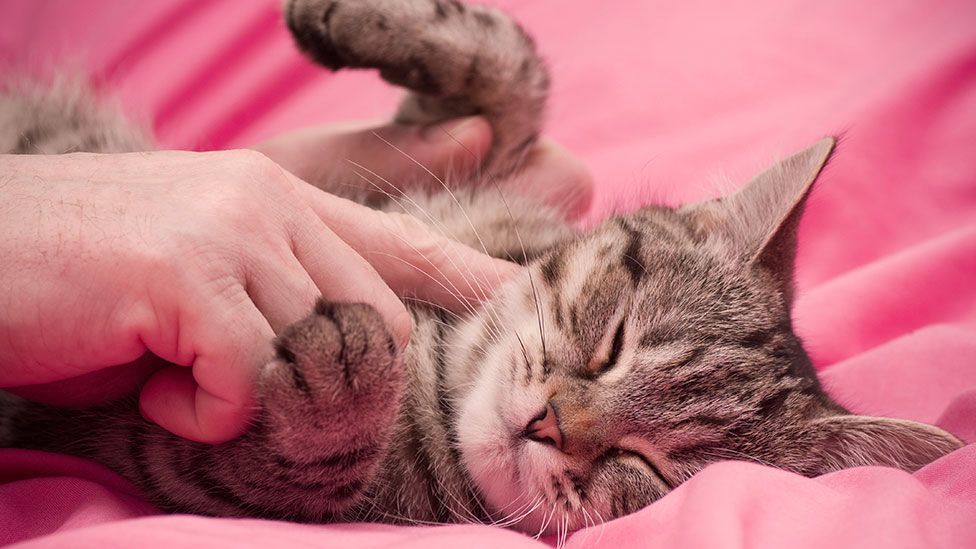
We know animals like cats experience a general awareness of pleasure, but does this extend to sex activity? (Thinkstock)
But does that include lecherous pleasance likewise? One style to observe out is to study instances of sex that can't peradventure result in procreation – for instance, amid two or more than males, or females; where one or more than private is sexually immature, or sex activity that occurs outside of the breeding season.
Bonobos, for example, the so-chosen "hippie apes," are known for same-sexual activity interactions, and for interactions betwixt mature individuals and sub-adults or juveniles. But you don't need to exist a bonobo to enjoy "not-conceptive" sexual practice, white-faced capuchin monkeys do information technology too. In both species, primatologists Joseph Manson, Susan Perry, and Amy Parish, found that that females' solicitation of males was decoupled from their fertility. In other words, they had plenty of sex even when pregnancy was incommunicable – such every bit when they were already significant, or while lactating but post-obit nativity. In addition, interactions among mature and immature individuals were just every bit common as interactions between two adults, for both species.
If animals indulge in more sex than is strictly necessary for conception, that too might hint at a pleasure-driven motivation to do the deed. A female lion may mate 100 times per day over a period of almost a week, and with multiple partners, each fourth dimension she ovulates. It only takes one eager sperm to brainstorm the road from formulation to nativity, but the lioness doesn't seem to mind. Could it be that she enjoys it? Similarly loftier rates of encounters take been observed among cougars and leopards, too.
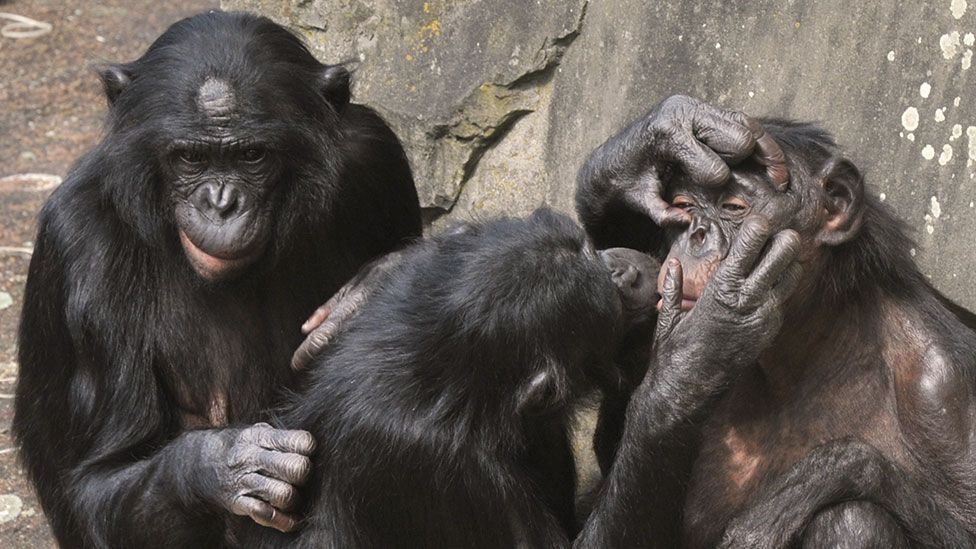
Researchers have been studying the broad and varied interactions that bonobos take part in for many years (Getty Images)
Another way you might learn whether non-homo animals derive pleasure is whether they have orgasms. That's especially true for females, since conception does not rely on their ability to feel i. Italian researchers Alfonso Troisi and Monica Carosi spent 238 hours watching Japanese macaques, and witnessed 240 individual copulations between males and females. In a third of those copulations, they observed what they called female orgasmic responses: "the female turns her head to expect dorsum at her partner, reaches back with i mitt, and grasps the male."
While it'due south impossible to enquire a female macaque to interrogate her feelings, information technology is reasonable to infer that this behaviour is similar to that experienced by human women, at least in some ways. That'southward in part because this macaque behaviour is sometimes accompanied by the type of physiological changes seen in humans, such as increases in heart charge per unit and vaginal spasms. Interestingly, the female macaques were more than likely to experience a response when copulating with a male who lived college-up in their monkey dominance hierarchy, suggesting that in that location is a social, not simply physiological, component to this, not only a reflexive responses to sexual stimulation.
Oral sex also occurs with some frequency throughout the creature kingdom. It's been observed in primates, spotted hyenas, goats and sheep. Female cheetahs and lions lick and rub the males' genitals as a part of their courtship ritual. Oral sex is also well known amid short-nosed fruit bats, for whom it is idea to prolong copulation, thereby increasing the likelihood of fertilisation.
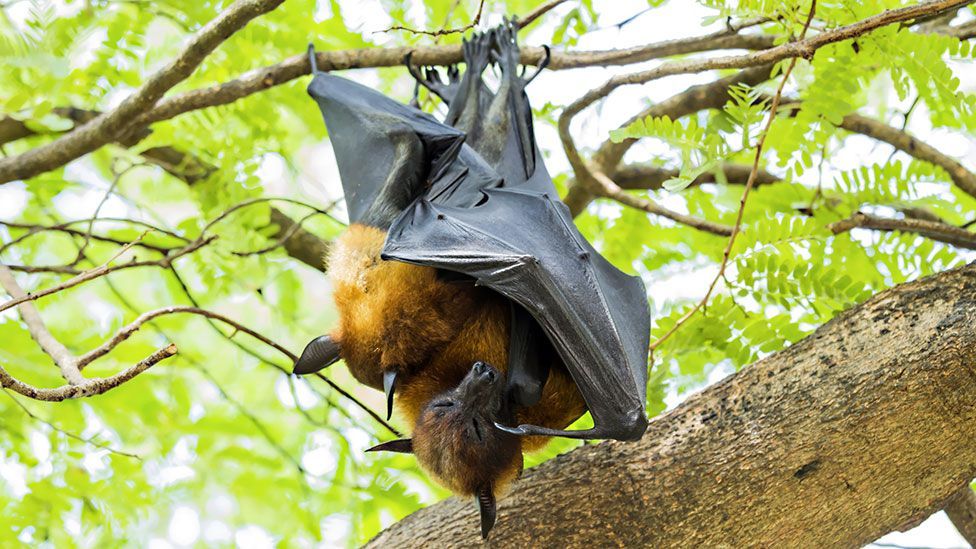
In short-nosed fruit bats, oral sexual practice is idea to help increase the likelihood of fertilisation (Thinkstock)
The near instructive example may come from a study of two captive male brown bears published earlier this twelvemonth in the journal Zoo Biology. Over the course of six years, researchers clustered 116 hours of behavioural observations, which included 28 acts of oral sexual activity between the 2 bears, who lived together in an enclosure at a sanctuary in Croatia.
The researchers, led past Agnieszka Sergiel of the Smooth Academy of Sciences Department of Wildlife Conservation, suspect that the behaviour began as a effect of early deprivation of suckling behaviour, since both bears were brought to the sanctuary as orphans, before they were fully weaned from their absentee mothers. Information technology persisted for years, even after the bears aged out of cub-hood, perhaps because information technology remained pleasurable and satisfying.
In most cases, researchers rely on evolutionary mechanisms to explain such animate being behaviour, to resist the pull of anthropomorphosis. As ethologist Jonathan Balcombe writes in Applied Animate being Behaviour Scientific discipline: "Pain's unpleasantness helps steer the animal abroad from 'bad' behaviours that risk the greater evolutionary disaster of decease. Similarly, pleasure encourages animals to behave in 'good' means, such equally feeding, mating, and…staying warm or cool."
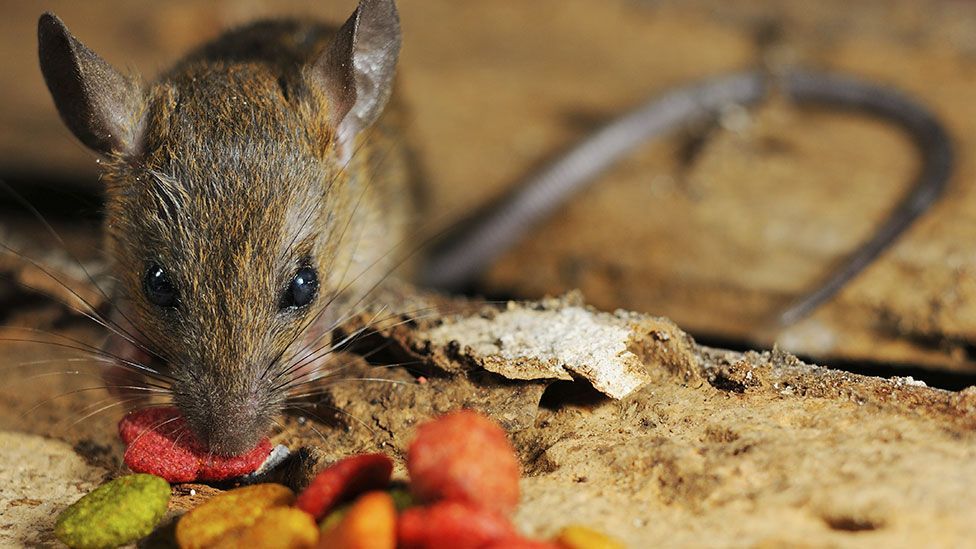
Could the urge in animals and humans to vary things in diet be because there's an in-built desire to effort new things? (Thinkstock)
Yet Balcombe proposes that scientists shouldn't merely view behaviour through the lens of evolution. He goes on to explain that rats prefer unfamiliar foods after three days in which they're only given a single type of nutrient to swallow. The simplest explanations for that pattern propose that the rats' behaviour is adaptive considering a diversity of foods allows them to ingest a wider range of nutrients, or perhaps because it allows them to avoid overdependence on a maybe limited food source. But is that as well narrow a view, when it'due south every bit plausible that the rats just became bored with their food and wanted to try something new? To spice things upwards a bit? Both explanations are probably true, depending on whether you take an expansive, zoomed-out perspective, or a more immediate, zoomed-in perspective.
Besides, sexual behaviour can be wholly enjoyable while also emerging from a deeper developmental or evolutionary origin. It is precisely because reproduction is so of import to the survival of a species that evolution fabricated it so pleasurable that animals – both human being and non-human – are motivated to seek it out even when conception is undesirable or incommunicable. The urge to seek out that sort of pleasure, writes Balcombe, "is a combination of instinct on the one paw, and a powerful desire to attain reward on the other." If then, it's articulate why these powerful feelings of pleasure aren't only restricted to us humans.
If you would like to annotate on this, or anything else you lot have seen on Time to come, head over to our Facebook or Google+ page, or message us on Twitter .
Source: https://www.bbc.com/future/article/20140613-do-animals-have-sex-for-fun
Posted by: embreetheatelf.blogspot.com

0 Response to "Are Humans The Only Animal That Male Noise Durring Sex?"
Post a Comment